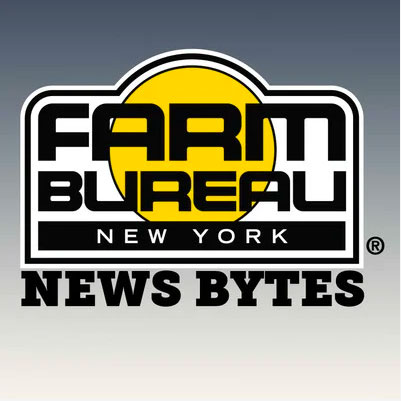NYFB Members Visit Albany to Advocate for State Priorities
NEWS FROM NEW YORK FARM BUREAU
Contact: Steve Ammerman, Manager of Public Affairs
518-431-5643 (Office) 518-573-3617 (Cell), sammerman@nyfb.org
For immediate Release:
March 3, 2016
NEW YORK FARM BUREAU MEMBERS VISIT ALBANY TO ADVOCATE FOR STATE PRIORITIES
Albany – Farmers from across the state spent two days in Albany this week visiting with lawmakers on February 29 and March 1 to highlight New York Farm Bureau’s public policy priorities for the year. They kicked things off with the popular Taste of New York reception for state lawmakers, commissioners and staff where 70 county Farm Bureaus and agricultural organizations hosted tables featuring local farm products for people to sample.
Following the evening event, nearly 250 members participated in the annual lobby day where they met with both their local and adopted Senators and Assembly members. In addition, the organization’s executive committee met personally with all four legislative leaders, including Senator Majority Leader John Flanagan and Assembly Speaker Carl Heastie, and had a meeting with the Governor’s Deputy Secretary for Food and Agriculture, Pat Hooker.
“This was one of the most successful lobby days we’ve held, and it couldn’t have come at a more pivotal time for New York agriculture. The issues that will be decided upon in Albany this year will have profound impacts on farming in this state for years to come,” said Dean Norton, New York Farm Bureau President.
Topping the list of state priorities is opposition to the proposed $15 minimum wage and the impact that it will have on New York farms. Farmers are concerned that a nearly 70% increase in labor costs will only make it harder to compete with products coming in from other states and countries with considerably lower production costs. An American Farm Bureau Federation economic analysis found a $15 minimum wage would cost New York agriculture $500 million or 25% of additional net income. This is expected to affect farms in a number of ways. The state will likely see farms reduce employment, turn to automation or close the barn doors for good.
State funding for critical farm programs is another top priority for Farm Bureau. The Governor included a number of things in his budget plan which would help the farm industry. This includes increased funding for the Environmental Protection Fund, which will assist farms with water quality, conservation and farmland protection programs, as well as necessary investments into animal health programs. Farm Bureau also asked lawmakers to support funding for promotion and research programs that also benefit agriculture in the state.
Members also asked for funding parity when it comes to repairing upstate roads and bridges. The Governor is committing $20 billion to match infrastructure efforts happening in and around New York City. The parity in upstate-downstate funding remains a priority because our farms need access to safe, well-maintained roads and bridges in order to move equipment to farm fields and transport their goods to market.
New York Farm Bureau also remains committed to securing funding to assist schools in starting up new FFA programs as well as for agricultural education programs. Each year, more schools are interested in these programs that provide career and technical skills that students need. United States Department of Agriculture estimates that there will be nearly 60,000 new jobs a year in the farming and food industries, and it is vital to have a workforce that can meet those employment demands to help the rural economy grow right here at home.
Farmers also discussed with lawmakers about transferring farm assessment functions to the New York State Department of Agriculture and Markets from the Department of Taxation and Finance. Moving the process to be entirely housed within NYSDAM will not only streamline the assessment process, but it would be a common sense move to improve a valuable program for our farms.
These priorities were based on member approved public policies that originate every year at the county Farm Bureau level and are passed by the full delegate body at New York Farm Bureau’s State Annual Meeting in December.
In addition to advocating for priorities with lawmakers, members also participated in a special panel discussion with the Commissioners and representatives from the Departments of Agriculture and Markets, Environmental Conservation and Labor. Members were able to ask the public officials questions about a number of issues facing the state’s family farms.
“I cannot thank our members enough for the time spent away from their farms to visit with their lawmakers in Albany. The large turnout reflects the passion and commitment they have to make a difference for their fellow farmers and this great organization. I also appreciate the time lawmakers took to speak with our members both at the reception and in their offices. New York Farm Bureau’s strong relationships with Senators and Assembly members on both sides of the aisle were also on full display this week,” said Norton.
New York Farm Bureau is the State’s largest agricultural lobbying/trade organization. Its members and the public know the organization as “The Voice of New York Agriculture.” New York Farm Bureau is dedicated to solving the economic and public policy issues challenging the agricultural community.



